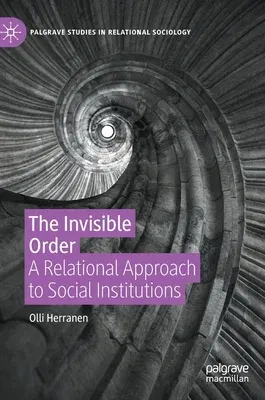Olli Herranen
(Author)The Invisible Order: A Relational Approach to Social Institutions (2022)Hardcover - 2022, 5 November 2022

Qty
1
Turbo
Ships in 2 - 3 days
In Stock
Free Delivery
Cash on Delivery
15 Days
Free Returns
Secure Checkout

Part of Series
Palgrave Studies in Relational Sociology
Print Length
267 pages
Language
English
Publisher
Palgrave MacMillan
Date Published
5 Nov 2022
ISBN-10
3031164806
ISBN-13
9783031164804
Description
Product Details
Author:
Book Edition:
2022
Book Format:
Hardcover
Country of Origin:
NL
Date Published:
5 November 2022
Dimensions:
21.01 x
14.81 x
1.75 cm
ISBN-10:
3031164806
ISBN-13:
9783031164804
Language:
English
Location:
Cham
Pages:
267
Publisher:
Weight:
494.42 gm